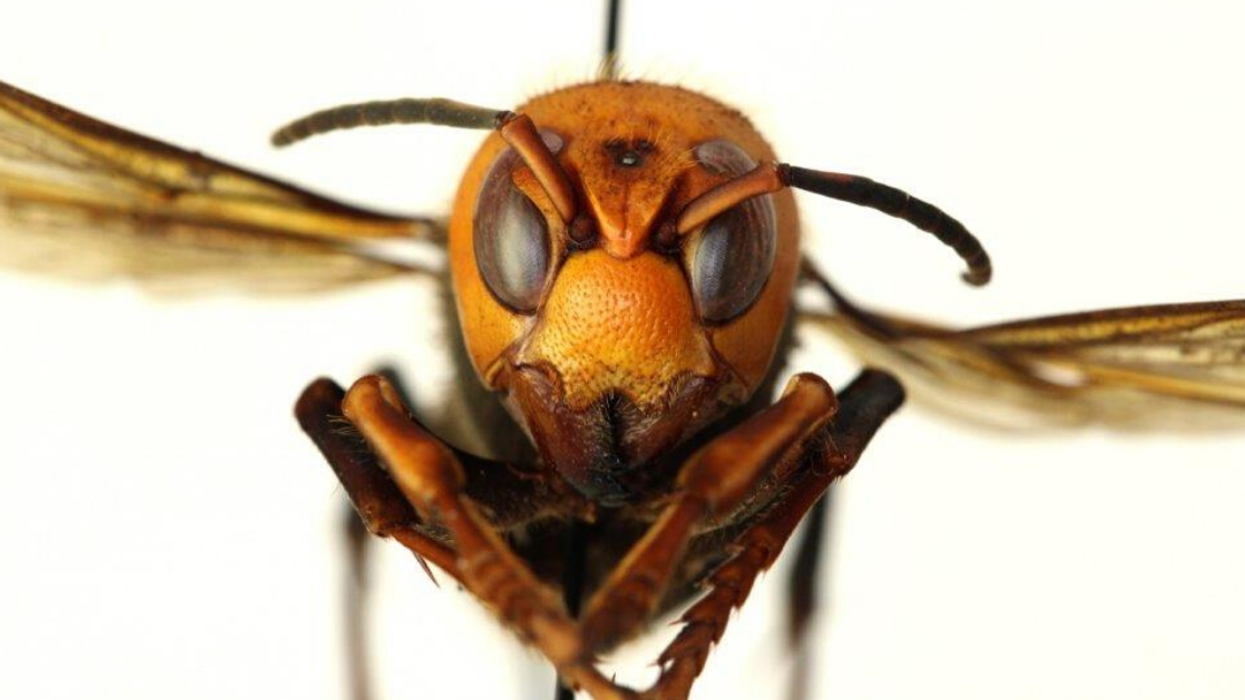As if the pandemic wasn't enough, the U.S. now faces another threat that will likely spread across the country and impact the entire nation.
It is, at its largest, just over two inches long and bites the head off of honey bees without a problem.
Washington State has had a run of bad luck. In the last few months, the Evergreen State has served as the initial foothold for two problematic forces threatening to sweep across the mainland United States.
First, of course, was the virus. Consider that one officially swept.
Now, a new six-legged threat has forced Washington into the guinea pig role. And, like the virus, the state will likely be only the first stop as the problem spreads east.
'Murder Hornets' spotted in USyoutu.be
The Asian Giant Hornet has already wreaked havoc in Japan.
It regularly kills 50 people per year in that country, according to the New York Times. The quarter inch long stinger can penetrate through protective bee keeping equipment and sting the flesh underneath.
One victim of the "Murder Hornets," as they're colloquially known, had this to say about the experience.
"It was like having red-hot thumbtacks being driven into my flesh."
Youtube wilderness explorer Coyote Peterson, who was also stung by the hornet, elaborated further on the ins and outs of the vicious sting.
Giant Hornet KNOCKS OUT Coyote!youtu.be
But the real concern posed by the Murder Hornets is not their direct threat to humans.
Rather, scientists are most concerned by the hornets' dangerous ability to quickly destroy honey bee colonies, a phenomenon that could create several secondary ramifications, particularly for human food sources.
Ruthie Danielsen, a beekeeper from Washington, gave the New York Times her succinct take:
"Most people are scared to get stung by them. We're scared that they are going to totally destroy our hives."
This concern has kicked Washington's beekeeping community into overdrive. The New York Times caught up with Chris Looney, an entomologist at the Washington State Department of Agriculture. He expressed a balance of urgency, hope, and fear.
"This is our window to keep it from establishing. If we can't do it in the next couple of years, it probably can't be done."
Looney has lead efforts to trap and tag the hornets across the state in hopes that locating and killing the insects will stop the problem before it gets out of hand and hits the entire country.
And beside efforts to trap the hornets, the state is also attempting to crowd-source solutions to the problem, asking residents to report any sightings.
Plenty of beekeepers across the country, however, do not hold high hopes for containment efforts.
Andrew Cote, a beekeeper from Manhattan in New York City, is already gearing up for the Murder Hornet onslaught. He told the New York Post that it's now merely a matter of when the hornets hit the east coast.
"We can expect them to be everywhere on the continent in time. … It's a done deal."
"There's no way to contain it to the West Coast."
Like all beekeepers staring down this threat, Cote fears the life of his colonies, who could be destroyed in record time. He continued to tell the NY Post:
"[It] can decimate a honey bee colony because it needs to build up protein for its own colony, so it decapitates and consumes part of the honey bee."
Twitter, of course, did not take the news of a second national threat lightly.
The Oatmeal added some perspective as well.
Thanks Oatmeal, we feel so much better now...
Perhaps the horrifying nature of the painful sting will serve to encourage folks to continue to remain home even as the weather warms. Only time will tell how Murder Hornets and the pandemic overlap.
The documentary Microcosmos, available here, explores the world of insects.








 @realDonaldTrump/Truth Social
@realDonaldTrump/Truth Social





 @rootednjoyy/TikTok
@rootednjoyy/TikTok @rootednjoyy/TikTok
@rootednjoyy/TikTok @rootednjoyy/TikTok
@rootednjoyy/TikTok @rootednjoyy/TikTok
@rootednjoyy/TikTok @rootednjoyy/TikTok
@rootednjoyy/TikTok @rootednjoyy/TikTok
@rootednjoyy/TikTok @rootednjoyy/TikTok
@rootednjoyy/TikTok @rootednjoyy/TikTok
@rootednjoyy/TikTok @rootednjoyy/TikTok
@rootednjoyy/TikTok @rootednjoyy/TikTok
@rootednjoyy/TikTok @rootednjoyy/TikTok
@rootednjoyy/TikTok @rootednjoyy/TikTok
@rootednjoyy/TikTok @rootednjoyy/TikTok
@rootednjoyy/TikTok @rootednjoyy/TikTok
@rootednjoyy/TikTok
 @rootednjoyy/TikTok
@rootednjoyy/TikTok @rootednjoyy/TikTok
@rootednjoyy/TikTok @rootednjoyy/TikTok
@rootednjoyy/TikTok @rootednjoyy/TikTok
@rootednjoyy/TikTok @rootednjoyy/TikTok
@rootednjoyy/TikTok @rootednjoyy/TikTok
@rootednjoyy/TikTok @rootednjoyy/TikTok
@rootednjoyy/TikTok @rootednjoyy/TikTok
@rootednjoyy/TikTok @rootednjoyy/TikTok
@rootednjoyy/TikTok @rootednjoyy/TikTok
@rootednjoyy/TikTok
 @BarryMu38294164/X
@BarryMu38294164/X
